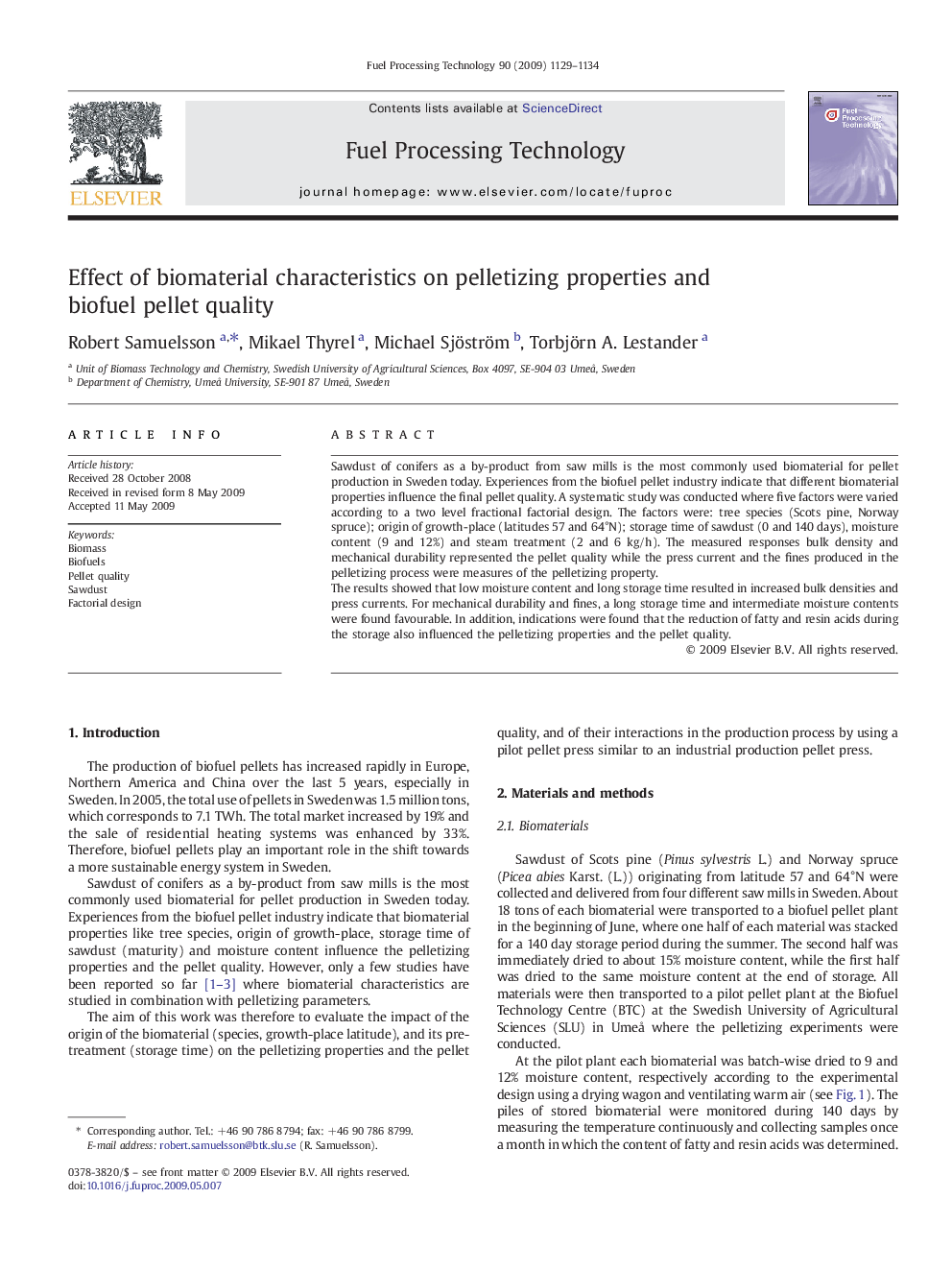| Article ID | Journal | Published Year | Pages | File Type |
|---|---|---|---|---|
| 211027 | Fuel Processing Technology | 2009 | 6 Pages |
Sawdust of conifers as a by-product from saw mills is the most commonly used biomaterial for pellet production in Sweden today. Experiences from the biofuel pellet industry indicate that different biomaterial properties influence the final pellet quality. A systematic study was conducted where five factors were varied according to a two level fractional factorial design. The factors were: tree species (Scots pine, Norway spruce); origin of growth-place (latitudes 57 and 64°N); storage time of sawdust (0 and 140 days), moisture content (9 and 12%) and steam treatment (2 and 6 kg/h). The measured responses bulk density and mechanical durability represented the pellet quality while the press current and the fines produced in the pelletizing process were measures of the pelletizing property.The results showed that low moisture content and long storage time resulted in increased bulk densities and press currents. For mechanical durability and fines, a long storage time and intermediate moisture contents were found favourable. In addition, indications were found that the reduction of fatty and resin acids during the storage also influenced the pelletizing properties and the pellet quality.
